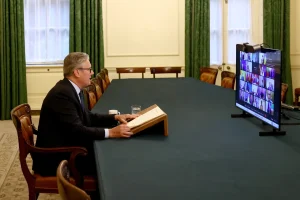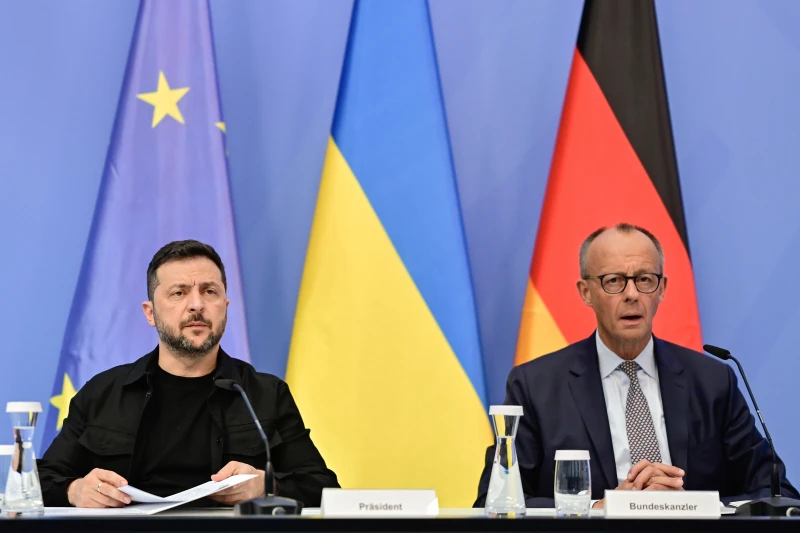US President Donald Trump warned Wednesday that there will be “very severe consequences” if Russian President Vladimir Putin does not agree to stop the war against Ukraine after the two leaders meet for a summit later this week in Alaska.
Trump made the comment in response to a question from a reporter after announcing this year’s Kennedy Center Honors recipients in Washington. He did not say what the consequences might be, reports AP.
The remark came soon after Trump consulted with European leaders, who said the president assured them he would make a priority of trying to achieve a ceasefire in Ukraine when he speaks with Putin on Friday in Anchorage.
Ukrainian President Volodymyr Zelenskyy joined several of Kyiv’s main allies in the virtual meeting with the US leader, and Zelenskyy told the group that Putin “is bluffing” ahead of the planned summit about Russia’s ability to occupy all of Ukraine and shake off sanctions.
German Chancellor Friedrich Merz said afterward that “important decisions” could be made in Alaska, but he stressed that “fundamental European and Ukrainian security interests must be protected.”
Merz convened Wednesday’s meeting in an attempt to make sure European and Ukrainian leaders are heard ahead of the summit.
He stressed that a ceasefire must come at the beginning of negotiations. He told reporters that Trump “also wants to make this one of his priorities” in the meeting with Putin.

At a separate appearance in France, French President Emmanuel Macron said Trump “was very clear” that the US wants to achieve a ceasefire at the summit.
Following Friday’s summit, Macron added, Trump will “seek a future trilateral meeting” — one involving Trump, Putin and Zelenskyy. He said he hoped that it could be held in Europe “in a neutral country that is acceptable to all parties.”
Merz, who described Wednesday’s conversation as “constructive and good,” said the Europeans made clear that “Ukraine must sit at the table as soon as there are follow-up meetings.”
European allies have pushed for Ukraine’s involvement in any peace talks, fearful that discussions that exclude Kyiv could otherwise favor Moscow.
The Ukrainian president, who traveled to Berlin to join the meeting alongside Merz, has repeatedly cast doubt on whether Putin would negotiate in good faith. He said Wednesday that he hoped an immediate ceasefire will be “the central topic” in Alaska, but also argued that Putin “definitely does not want peace.”
Zelenskyy said Putin “is trying to apply pressure … on all sectors of the Ukrainian front” in an attempt to show that Russia is “capable of occupying all of Ukraine.” Putin is also bluffing that sanctions “do not matter to him and are ineffective,” he added. “In reality, sanctions are very helpful and are hitting Russia’s war economy hard.”
The Europeans and Ukraine are wary that Putin, who has waged the biggest land war in Europe since 1945 and used Russia’s energy might to try to intimidate the European Union, might secure favorable concessions and set the outlines of a peace deal without them.
The overarching fear of many European countries is that Putin will set his sights on one of them next if he wins in Ukraine.
Merz said that “if there is no movement on the Russian side in Alaska, then the United States and the Europeans should and must increase the pressure” on Moscow.


